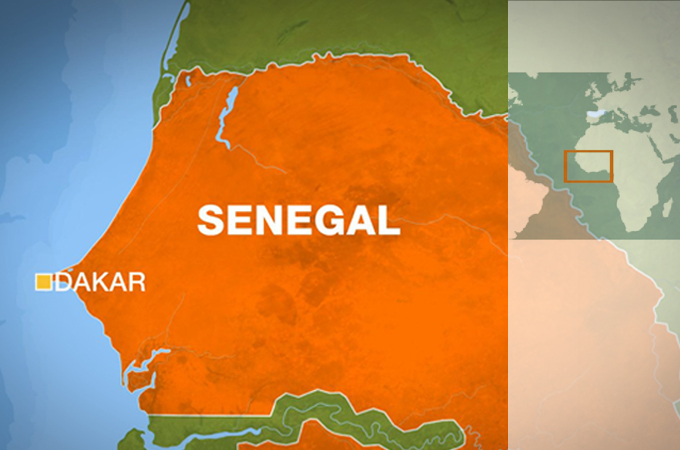Senegal opposition vows to resist Wade bid
Activists call for more resistance against President Abdoulaye Wade after court ruling sparked riots in capital.

Senegal’s opposition has called for more resistance to the court approval of President Abdoulaye Wade‘s bid to seek a highly disputed third term, after a night of riots in the capital, Dakar.
Opposition leaders vowed on Saturday to force the president out of office, threatening to march on the palace in a city reeling from violent riots that left at least one policeman dead, according to local media.
“We are asking the people to remain alert and to resist Abdoulaye Wade,” Abdoul Aziz Diop, the spokesman for opposition activist movement M23, told the Reuters news agency on Saturday.
“If Wade tries to impose himself on us … we will resist.”
Diop said that opposition figures and activist leaders were meeting on Saturday to discuss their next steps.
The meeting came a day after Senegal’s constitutional court approved a list of 14 candidates who had met the requirements to run for president in the February 26 election.
Among them was the 85-year-old Wade. However, the court rejected the candidacy of music icon Youssou N’Dour, who warned of rising tension in the country and vowed to challenge his disqualification.
Fury in Dakar
The ruling sparked fury in the capital, where protesters clashed with police. Anti-Wade protesters threw stones at police who responded with batons and tear gas after the much-anticipated ruling.
Youths set fire to tyres and engaged in running battles with police in the streets around la Place de l’Obelisque, one of the main squares in Colobane, a working class district of the capital.
Ebrima Sillah, a Senegalese journalist, told Al Jazeera that relative calm had returned to Dakar late in the night.
“At the moment, the situation is a bit under control,” he said. “The security forces have managed to take control of the streets from opposition supporters. They set fire to a lot shops, especially in the boulevard area of Dakar where you have a lot Chinese businesses concentrated.”
A little earlier, in the more affluent suburb of Almadies, the list of eligible candidates had been posted at the office of the Constitutional Council.
They included the names of three ex-prime ministers, Idrissa Seck, Macky Sall and Moustapha Niasse, as well as the main opposition leader Ousmane Tanor Dieng.
Constitutional controversy
N’Dour, who shocked the music world when he announced earlier in January he was quitting singing for politics, was left off the list. Senegal’s Constitutional Council said he had not gathered the required 10,000 signatures of support.
N’Dour called on his supporters to prevent the elections from going ahead.
 |
“We will never allow Abdoulaye Wade to take part in the election,” he said, speaking on his own TFM television channel.
“The decision to keep me out had nothing to do with the law. It was a political decision and we will reply with a political decision,” he said, without giving further details.
The constitutional row over Wade’s ambitions has set one of Africa’s most stable democracies on edge and the international community has expressed concern over the potential for violence, appealing for calm.
The ruling seals months of speculation over the interpretation of the constitution on presidential mandates.
Wade was first elected in 2000 for a seven-year mandate, and re-elected in 2007 under a new constitution for a five-year mandate. In 2008 the constitution was changed again to allow for two seven-year terms from 2012.
Wade argued this allowed him to run again, twice if he so wishes, but the opposition condemned this as illegal.
Observers have warned against a repetition of violent riots in June last year and clashes between rival parties in December which left one person dead.